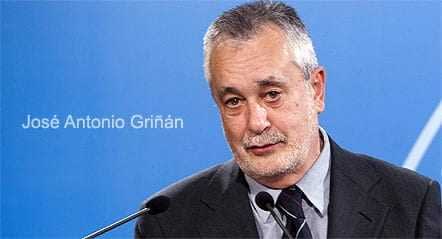Spain’s biggest olive oil fair, Expoliva, kicked off in Andalusia yesterday (May 11) as the region’s government announced loans to help producers avoid selling at a loss.

Andalusian president José Antonio Griñán, speaking at the fair in Jaén, also urged the olive oil industry to put its efforts into decreasing the level of fragmentation on the production side, become world leaders not just in producing olive oil but in marketing it internationally, and to put greater emphasis on quality.
While few details were available yesterday, Griñán said the new credit scheme would be sufficient to help olive oil producers stay solvent and was a step towards “maintaining fair prices.” It’s the latest attempt to help the sector recover from record lows in olive oil prices and three consecutive years of selling below cost.
On May 26 a working party set up to consider other solutions will be meet in Madrid, followed a day later by a meeting between European Commissioner for Agriculture Dacian Cioloş and key stakeholders. There is a persisting clamor in Spain for the provision of private storage aid for olive oil but Cioloş remains adamant that prices in Spain are not low enough for the assistance.
There were also calls this week for the International Olive Council (IOC) to make it a priority to see new olive oil producing countries, such as the United States, Chile and Australia, become members.
Isabel Bombal, the Director of the Industry and Food Markets within Spain’s Ministry of the Environment, Rural and Marine Affairs (MARM) said she had stressed the need to see these countries join “in the short-to-medium term.” She said she had sent the message to the IOC during a meeting with IOC Executive Director Jean-Louis Barjol and a representative (unnamed) from Spain’s Interprofesional del Aceite de Oliva Español (a non-profit official organization representing all members of the olive oil sector).
In a media statement after the meeting on Wednesday, Bombal said she had urged the “development of a common strategy based on working together and keeping the lines of communication open.” It was important to increase the role held by the IOC as the preeminent world “forum to discuss and set standards” that would form the basis of a level playing field for all olive oil producers internationally, she said.
Expoliva has attracted 333 exhibitors — including companies from Argentina, France, Germany, Italy, Portugal, the U.S. and Tunisia — and will run until Saturday. Among new initiatives announced there yesterday was the ongoing development of a glossary of olive oil terms in Spanish, English and Chinese.






